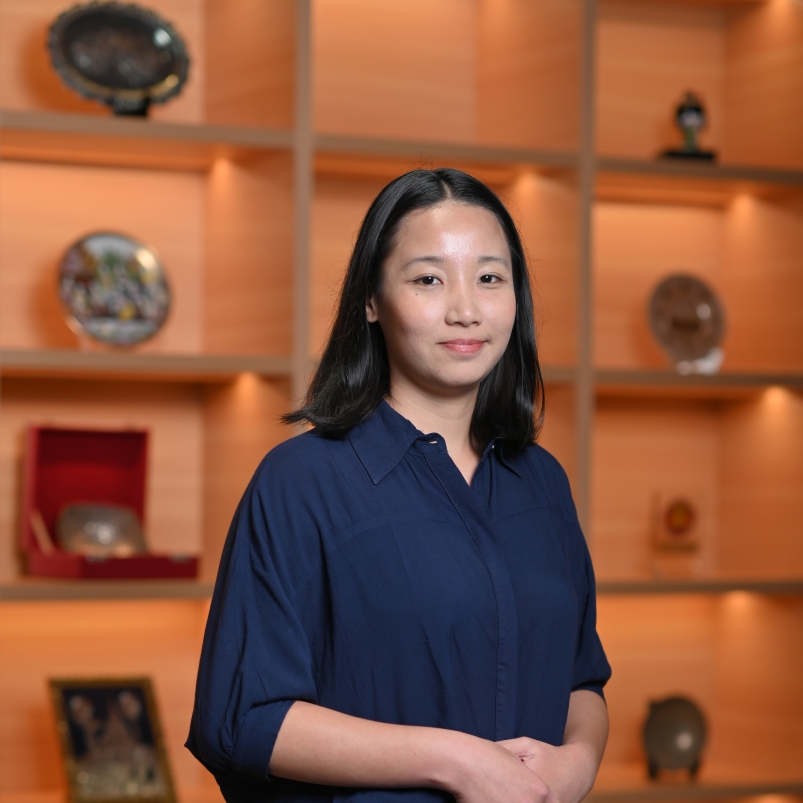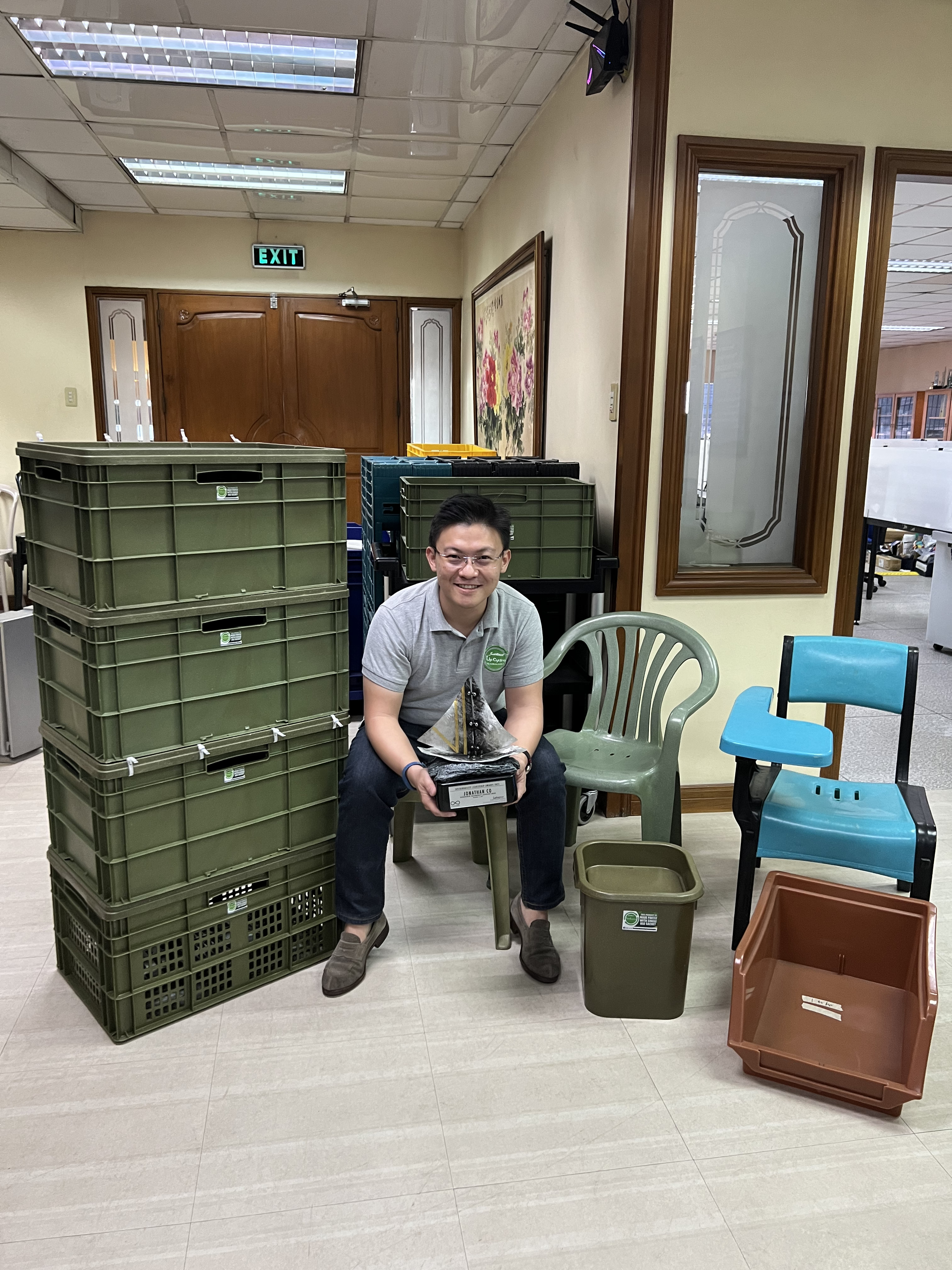
Vientiane, 29 October 2024: The Association of Southeast Asian Nations (ASEAN) Conference on Combatting Plastic Pollution (ACCPP) 2024 concluded its 2-day event at the Double Tree Hilton in Vientiane, Lao People’s Democratic Republic (Lao PDR). Co-organised by the Lao Ministry of Natural Resources and Environment (MONRE), the Economic Research Institute for ASEAN and East Asia (ERIA), and the United Nations Development Programme (UNDP) Lao PDR under Lao PDR's ASEAN Chairmanship for 2024, the conference brought together over 200 in-person and online participants from government institutions, the private sector, academia, and civil society.
The ACCPP 2024 marked the second edition of this regional conference, following the inaugural event held in Jakarta during Indonesia’s ASEAN Chairmanship in 2023. Building on the success of ACCPP 2023, this year’s conference aimed to further provide ASEAN stakeholders with a platform to exchange knowledge, share experiences, and discuss strategies and collaborations to address plastic pollution. Under the theme ‘Action, Innovation, and Partnership to Phase Out Plastic Pollution,’ the 2-day event from 28–29 October 2024, focused on partnerships and innovation on the first day, with the second day dedicated to actions and solutions
Read more: A United ASEAN Against Plastic Pollution
The importance of collaborative actions to address plastic pollution was mentioned repeatedly in the opening remark delivered by H.E. Mr Phouvong Luangxaysana, Vice-Minister of Natural Resources and Environment of Lao PDR as well as the welcome remarks by Mr Tetsuya Watanabe, President of ERIA, through a recorded video message, and by Mme Martine Therer, Resident Representative of UNDP Lao PDR. In his remarks, H.E. Mr Luangxaysana stated that, ‘plastic pollution is also transboundary and can travel from one community to another, from one country to another, from rivers to oceans, meaning that to achieve changes at scale, we need more collective efforts and cross-border collaborations. Therefore, I believe this is an opportune moment for us to come together at this conference and discuss how we can learn, work, and act collectively toward a clean and sustainable environment without plastic pollution.’
The conference's discussions were organised into sessions covering key topics on plastic pollution, including regional collaborations, the global plastic treaty, extended producer responsibility (EPR), informal waste workers, and behavioural change – issues that are currently central to the plastic pollution dialogue. Each session featured keynote presenters and expert panelists who shared valuable insights and experiences, enriching the conversations with practical and policy-oriented perspectives. Experts from ERIA's Regional Knowledge Centre for Marine Plastic Debris actively contributed to several sessions.
Mr Reo Kawamura, Director of the Regional Knowledge Centre, participated as a panelist in the session on regional collaborations, where he shared the Centre’s experience in collaborating with regional partners to develop and share knowledge on combatting plastic pollution. Additionally, Mr Kawamura moderated the session on EPR, which included a keynote presentation by Mr Michikazu Kojima, ERIA’s Senior Research Fellow on Environmental Issues, who discussed the development and application of EPR policies in the region. In another session, Mr Fusanori Iwasaki, ERIA Research Fellow, moderated discussions on the Intergovernmental Negotiating Committee (INC) on Plastic Pollution’s progress towards a global plastic treaty, highlighting ASEAN Member States' perspectives.
One of the key themes at ACCPP 2024 was innovation to tackle plastic pollution across ASEAN. A special session introduced regional initiatives like the Southeast Asia Regional Program for Combatting Marine Plastics (SEA-MaP) Project, which features an innovation and investment platform, and the United Nations Environment Programme’s (UNEP) SEA Circular Project, aimed at spurring innovation in plastic pollution solutions across Southeast Asia.
The session also spotlighted participants from the Ending Plastic Pollution Innovation Challenge (EPPIC) – a competition organised by UNDP and supported by the Norwegian Ministry of Foreign Affairs and Norad. EPPIC awarded 12 winners from the ASEAN region with a 9-month impact acceleration programme. Ten of these innovators attended the conference, pitching their projects on stage and participating in an exhibition to showcase their work.
Read more: Presentation Materials from ACCPP 2024
On the final day, participants visited the Lao Textile Museum to explore the country’s traditional silk-woven fabrics. These textiles, while not new innovations, are crafted with organic materials and natural dyes, offering a sustainable alternative to synthetic plastic fibres commonly used in today’s fast-fashion industry. This visit highlighted the relevance of traditional, sustainable materials in reducing plastic pollution.
Plastic pollution is a complex issue with uncertain outcomes. However, it is clear that ongoing efforts like regional multistakeholder collaborations, the foundation of the ACCPP, are essential and must be sustained. In his closing remarks at the conference, Mr Thevarack Phonekeo, Deputy Director General of the Department of Environment at MONRE, Lao PDR, stated, ‘As Malaysia will be the chair of ASEAN next year, I encourage Malaysia to continue this new tradition that Indonesia initiated and Lao PDR confirmed by organising the third edition of the ACCPP.’ His words reflect the hope for future editions of the ACCPP, offering a continued platform for ASEAN stakeholders to collaborate on building a sustainable future for plastic use and waste management.
Read more: ACCPP 2024 Concept Note
Vientiane, 29 October 2024: The Association of Southeast Asian Nations (ASEAN) Conference on Combatting Plastic Pollution (ACCPP) 2024 concluded its 2-day event at the Double Tree Hilton in Vientiane, Lao People’s Democratic Republic (Lao PDR). Co-organised by the Lao Ministry of Natural Resources and Environment (MONRE), the Economic Research Institute for ASEAN and East Asia (ERIA), and the United Nations Development Programme (UNDP) Lao PDR under Lao PDR's ASEAN Chairmanship for 2024, the conference brought together over 200 in-person and online participants from government institutions, the private sector, academia, and civil society.
The ACCPP 2024 marked the second edition of this regional conference, following the inaugural event held in Jakarta during Indonesia’s ASEAN Chairmanship in 2023. Building on the success of ACCPP 2023, this year’s conference aimed to further provide ASEAN stakeholders with a platform to exchange knowledge, share experiences, and discuss strategies and collaborations to address plastic pollution. Under the theme ‘Action, Innovation, and Partnership to Phase Out Plastic Pollution,’ the 2-day event from 28–29 October 2024, focused on partnerships and innovation on the first day, with the second day dedicated to actions and solutions
Read more: A United ASEAN Against Plastic Pollution
The importance of collaborative actions to address plastic pollution was mentioned repeatedly in the opening remark delivered by H.E. Mr Phouvong Luangxaysana, Vice-Minister of Natural Resources and Environment of Lao PDR as well as the welcome remarks by Mr Tetsuya Watanabe, President of ERIA, through a recorded video message, and by Mme Martine Therer, Resident Representative of UNDP Lao PDR. In his remarks, H.E. Mr Luangxaysana stated that, ‘plastic pollution is also transboundary and can travel from one community to another, from one country to another, from rivers to oceans, meaning that to achieve changes at scale, we need more collective efforts and cross-border collaborations. Therefore, I believe this is an opportune moment for us to come together at this conference and discuss how we can learn, work, and act collectively toward a clean and sustainable environment without plastic pollution.’
The conference's discussions were organised into sessions covering key topics on plastic pollution, including regional collaborations, the global plastic treaty, extended producer responsibility (EPR), informal waste workers, and behavioural change – issues that are currently central to the plastic pollution dialogue. Each session featured keynote presenters and expert panelists who shared valuable insights and experiences, enriching the conversations with practical and policy-oriented perspectives. Experts from ERIA's Regional Knowledge Centre for Marine Plastic Debris actively contributed to several sessions.
Mr Reo Kawamura, Director of the Regional Knowledge Centre, participated as a panelist in the session on regional collaborations, where he shared the Centre’s experience in collaborating with regional partners to develop and share knowledge on combatting plastic pollution. Additionally, Mr Kawamura moderated the session on EPR, which included a keynote presentation by Mr Michikazu Kojima, ERIA’s Senior Research Fellow on Environmental Issues, who discussed the development and application of EPR policies in the region. In another session, Mr Fusanori Iwasaki, ERIA Research Fellow, moderated discussions on the Intergovernmental Negotiating Committee (INC) on Plastic Pollution’s progress towards a global plastic treaty, highlighting ASEAN Member States' perspectives.
One of the key themes at ACCPP 2024 was innovation to tackle plastic pollution across ASEAN. A special session introduced regional initiatives like the Southeast Asia Regional Program for Combatting Marine Plastics (SEA-MaP) Project, which features an innovation and investment platform, and the United Nations Environment Programme’s (UNEP) SEA Circular Project, aimed at spurring innovation in plastic pollution solutions across Southeast Asia.
The session also spotlighted participants from the Ending Plastic Pollution Innovation Challenge (EPPIC) – a competition organised by UNDP and supported by the Norwegian Ministry of Foreign Affairs and Norad. EPPIC awarded 12 winners from the ASEAN region with a 9-month impact acceleration programme. Ten of these innovators attended the conference, pitching their projects on stage and participating in an exhibition to showcase their work.
Read more: Presentation Materials from ACCPP 2024
On the final day, participants visited the Lao Textile Museum to explore the country’s traditional silk-woven fabrics. These textiles, while not new innovations, are crafted with organic materials and natural dyes, offering a sustainable alternative to synthetic plastic fibres commonly used in today’s fast-fashion industry. This visit highlighted the relevance of traditional, sustainable materials in reducing plastic pollution.
Plastic pollution is a complex issue with uncertain outcomes. However, it is clear that ongoing efforts like regional multistakeholder collaborations, the foundation of the ACCPP, are essential and must be sustained. In his closing remarks at the conference, Mr Thevarack Phonekeo, Deputy Director General of the Department of Environment at MONRE, Lao PDR, stated, ‘As Malaysia will be the chair of ASEAN next year, I encourage Malaysia to continue this new tradition that Indonesia initiated and Lao PDR confirmed by organising the third edition of the ACCPP.’ His words reflect the hope for future editions of the ACCPP, offering a continued platform for ASEAN stakeholders to collaborate on building a sustainable future for plastic use and waste management.
Read more: ACCPP 2024 Concept Note

Research Associate


